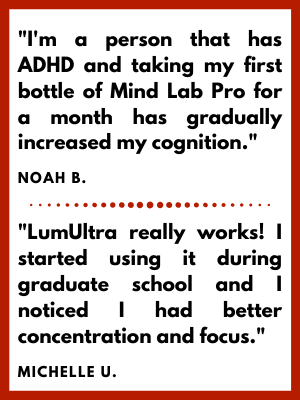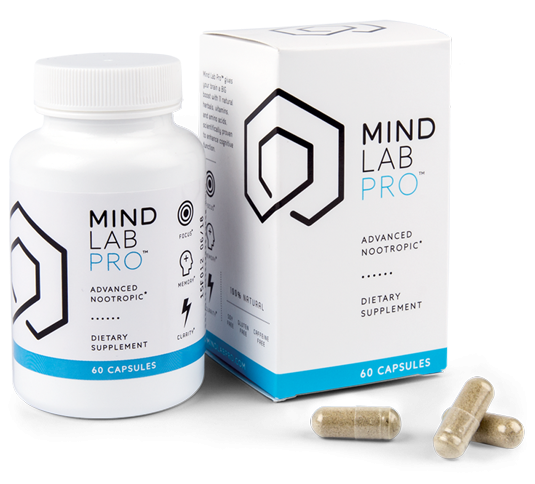Ginkgo biloba, also known as the “Maidenhair tree,” is a tree species that has demonstrated resilience even in the face of high radiation levels. This durability is why Ginkgo trees are considered one of the tree species we know today.
Traditionally, Ginkgo biloba was utilized in customs for its ability to enhance blood circulation. Recent scientific studies have verified these effects, which are indeed noteworthy.
Ginkgo biloba provides a multitude of advantages to areas of the body. While it is famous for its influence on heart health and cognitive function, it also promotes skin wellness, auditory capabilities, and physical stamina. The notable impacts of these components, which will be detailed, contribute to these benefits. Continue reading to explore how these elements achieve results.
Table of Contents
The Top 5 Benefits of Ginkgo Biloba

What bioactive compounds does Ginkgo biloba contain?
The active compounds present in Ginkgo biloba can be categorized into two groups: flavone glycosides and terpene lactones. Flavone glycosides are recognized for their role in regulating inflammation levels, while terpene lactones support brain function enhancement. That’s why we have specifically opted to standardize our Ginkgo biloba extract to include 10% kaempferol glycosides and 2% bilobalide. This specific blend aims to maximize Ginkgo’s brain health benefits.
Why opt for bilobalide and kaempferol?
To start off, bilobalide comes with qualities that support function. An intriguing aspect of its workings involves the inhibition of GABA subunits, which do not affect relaxation but play a vital role in memory.
The second key component, kaempferol, is found in quantities in vegetables. When included in a vegetable-based diet, kaempferol shows effects. However, when it is part of our Ginkgo Biloba extract at a 10% concentration, its impact is magnified. One notable benefit of kaempferol lies in its ability to regulate inflammation levels effectively. Moreover, it may provide benefits that are highly valued in cognitive enhancers.
Ginkgo Biloba Aids Memory Support
Gingko Biloba stands out among memory supplements due to its mechanism involving GABAergic signaling. Gingko biloba works on specific subunits of GABA A receptors, mainly a1 and a5, to potentially improve memory functions. This is different from supplements that increase activity to help you relax. By blocking these subunits, any negative effects on memory can be reversed while allowing for relaxation through other receptor pathways.
Each component of the GABA A receptor has effects.
- Activating a1 subunits brings about a sense of calmness and muscle relaxation. It may lead to reduced memory function. Conversely, blocking a1 subunits could potentially improve memory.
- Activation of a2 and a3 subunits induces an effect without influencing memory.
- Activation of a4 subunits is closely tied to the brain’s reward and pleasure pathways.
- Like with A1 activation, stimulating A5 subunits promotes relaxation but hampers memory. However, inhibiting a5 subunits can have the effect of enhancing memory.
- Activating a6 subunits has an impact on memory at certain levels, yet high levels of activation might hinder explicit memory while leaving implicit memory unaffected.
It is clear that completely blocking GABA A receptors is not ideal. The focus should be on inhibiting GABA A subunits to enhance memory without disrupting relaxation, stress responses, or mood regulation. Ginkgo Biloba accomplishes this by counteracting the GABA A subunits for regulating memory while sparing those that control relaxation.
Ginkgo biloba is thought to boost memory by antagonizing a1 subunits since their activation negatively impacts memory. While there isn’t research on blocking a1 subunits, studies suggest that inhibiting a5 subunits significantly improves memory retention.
Moreover, a specific type of subunit called a1 has been found to have an impact, on memory regulation, indicating that by inhibiting them with bilobalide, there could be an improvement in this memory aspect. The targeted blocking of a1 subunits by bilobalide presents a possibility for enhancing memory.
However, Ginkgo Bilobas influence on memory is not through the mechanism. It also regulates norepinephrine transporters, resulting in higher levels of norepinephrine and other catecholamines in the cortex. These neurotransmitters play roles in memory function, executive function.
Additionally, Ginkgo biloba likely boosts memory by promoting neurogenesis. The process of generating neurons in the brain. This neurogenesis, combined with the mentioned memory-enhancing effects, may facilitate the changes linked to memory formation. Furthermore, Ginkgo Biloba might also support brain-derived neuron (BDNF), further contributing to enhancing memory. Given its multitude of advantages for memory function, it’s no wonder that Ginkgo Biloba’s among the favored natural nootropic supplements out there.
Enhancement of Blood Circulation, with Ginkgo Biloba
Ginkgo biloba is widely recognized for its capacity to improve blood circulation. It achieves this by triggering nitric oxide production through nitric oxide synthase (eNOS) within the walls of blood vessels. Nitric oxide binds to receptors, in the vessel walls, causing them to relax and facilitate the flow of blood. This process, called vasodilation, is further boosted by Ginkgo Bilobas ability to increase enzyme levels.
Recognizing the impact of Ginkgo biloba on blood circulation and its significance in our lives is crucial. Blood transports nutrients, neurotransmitters, hormones, and oxygen throughout the body, underscoring the importance of blood flow. Improved blood circulation in the brain can enhance cell and neuron function, cognitive abilities, and memory. Studies suggest that reduced eNOS enzyme activity could impair function; hence, Ginkgo Bilobas support for health and cognitive well being by enhancing overall eNOS activity is noteworthy. It’s no surprise that Ginkgo Biloba has become popular for its targeted influence on blood flow.
Ginkgo Biloba Supports Hearing Health
Our sense of hearing plays a role in life and is often underestimated. From waking up to an alarm clock sound to enjoying music during commutes or engaging in conversations, with friends—everyday sounds shape our experiences. Hearing is not just important, for our well being. A decrease in hearing ability can also affect our emotions and sleep. Therefore, it is crucial to take care of our ears to ensure they work properly. Ginkgo biloba could be an option for supporting ear health, along with its advantages.
The potential benefits of Ginkgo Biloba in protecting ear health come from its ability to regulate activating factor (PAF). Studies suggest that the impact of Ginkgo Biloba on ear health is linked to how PAF interacts with nitric oxide (iNOS) in the cochlea. Research shows that PAF activation in the cochlea can cause hearing damage, which can be lessened by inhibiting iNOS. Interestingly Ginkgo Biloba not hinders PAF. Also decreases iNOS activity. This indicates that activating PAF may contribute to hearing damage through iNOS. Therefore Ginkgo Biloba might be a choice for enhancing ear health by blocking both PAF and iNOS activities.
Ginkgo Biloba Supports Healthy Skin
Ginkgo biloba is unique, among supplements because of its effects, including its ability to improve skin health. You can experience this benefit by either applying Ginkgo Biloba to your skin or taking it internally. When Ginkgo Biloba is applied topically, it helps improve skin moisture levels and may also assist in supporting melanocyte function and fighting against stress, thus shielding the skin from elements, like UV rays. These combined benefits contribute to the health of the skin.
Using Ginkgo Biloba internally not only offers other benefits but also promotes skin health. It comes in powder form, providing flexibility in how it can be consumed. For those who prefer it, we have created a simple. Tested moisturizer recipe that can be easily made at home. To make this Ginkgo Biloba-infused moisturizer, we started with a base of Cetaphil lotion. I added a precise amount of Ginkgo Biloba powder (measured with our accurate milligram scale). Below is the formula for a batch of this moisturizer:
Ginkgo Biloba Infused Moisturizer
- 100 grams of Cetaphil moisturizing lotion
- 1 gram of Ginkgo Biloba extract powder (1% concentration)
After measuring the ingredients thoroughly, mix them together using a glass stirring rod. It may take a minutes. Eventually, everything will blend well. As with any skincare product, we recommend doing a patch test before applying the Ginkgo Biloba-infused moisturizer to your face. After incorporating this moisturizer into our routine for two weeks we noticed the following outcomes;
- Our skin felt incredibly hydrated surpassing the effectiveness of the trusted Cetaphil lotion.
- Our skin appeared smoother with flaws.
- Interestingly we found that the moisturizer infused with Ginkgo Biloba seemed to speed up our skins tanning process, which aligns with Ginkgo Bilobas potential to enhance melanocyte function.
Boosting Physical Endurance, with Ginkgo Biloba
Ginkgo Bilobas impact on blood circulation goes beyond memory enhancement; it also supports performance. At altitudes where oxygen levels drop in the blood engaging in activities becomes more challenging. However Ginkgo Biloba can help by improving blood flow and potentially reducing the effects of altitudes on endurance.
The benefits of Ginkgo Biloba for endurance can also be linked to its ability to maintain oxidation levels and cognitive function. While not specifically tailored for enhancing endurance Ginkgo Bilobas unique effects make it a valuable addition, to an athletes regimen.










